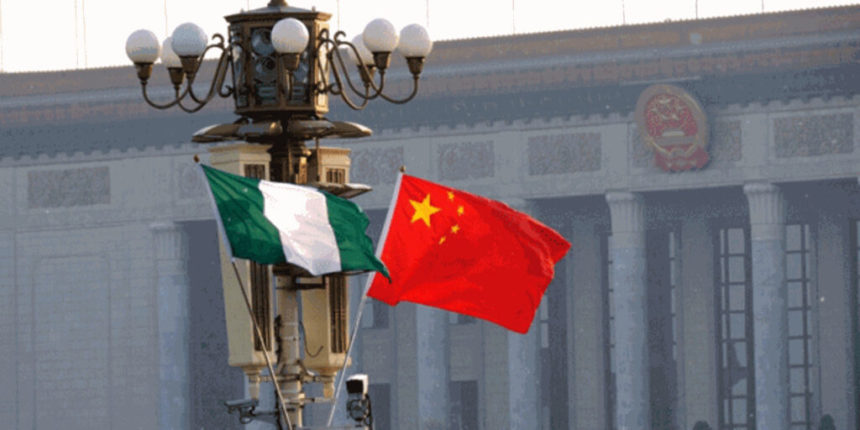The 28th edition of the United Nations Climate Change Conference, widely known as COP28, kicked off in Dubai, the United Arab Emirates (UAE) on November 30.
The annual conference is the world’s only multilateral decision-making forum on climate change with almost complete membership of every country worldwide.
It provides a forum for decisions on how to address the climate crisis, such as limiting global temperature rise to 1.5°C, helping vulnerable communities adapt to the effects of climate change, net-zero emissions and climate financing.
A total of 81,027 delegates registered to attend COP28 in person, including political and business leaders, climate scientists, journalists, and other stakeholders.
Nigeria, which is among the member states, was represented at the event with a delegation led by President Bola Tinubu.
However, there have been criticisms over the number of registered delegates from Nigeria at the conference.
In a series of tweets on Sunday, Peter Obi, presidential candidate of the Labour Party (LP) in the 2023 elections, criticised the size of Nigeria’s delegation, describing it as a “waste of scarce resources“.
Obi made several claims in his tweets. TheCable compared the politician’s statements to available data and this is what we found.
CLAIM 1: NIGERIA HAS SAME NUMBER OF DELEGATES AS CHINA
Verdict: Correct
In his tweets, Obi “congratulated” Nigeria for equalling China in the number of delegates at the conference.
“In a twist of sad irony, let me congratulate the giant of Africa, Nigeria, for matching the great China, with the same number of contingents at the ongoing COP28 in Dubai, United Arab Emirates,” the LP presidential candidate tweeted.
“Nigeria’s contingent to COP28 totalled 1,411, the same number as the Chinese contingents.”
A list of delegates published by the organisers showed that 1,411 participants registered from Nigeria.
Thus, Nigeria had the third-highest overall number of delegates at the conference — alongside China.
The participants’ list also showed that Nigeria has the highest number of registered delegates from Africa.
The host, UAE, occupied the overall top spot with 4,409 delegates, followed by Brazil with 3,081.
CLAIM 2: CHINA’S BUDGET FOR 2024 IS ABOUT $4 TRILLION
Verdict: Partly incorrect
Arguing that the number of delegates is a needless expense of lean resources, Obi said Nigeria’s 2024 budget is about $33 billion compared to China’s which he claimed had budgeted $4 trillion.
“While China’s budget for 2024 is about $4 trillion, about $2,860 per head; Nigeria’s budget is about $33 billion, about $165 per head,” he said.
China’s budget is usually announced during the country’s annual parliamentary sessions. The 2023 budget figures were announced in March. As such, China does not yet have a 2024 budget.
For its 2023 budget, China projected a revenue of RMB 23.6 trillion ($3.4 trillion) and set spending at RMB 27.5 trillion ($4 trillion), resulting in an official deficit of nearly RMB 3.9 trillion ($564.1 billion).
However, Obi is right in his claim about Nigeria’s budget’s size of about $33 trillion. President Bola Tinubu has presented a budget proposal of N27.5 trillion for the 2024 fiscal year. This translated to $36 billion at the budget benchmark exchange rate of N750/$ or $33.5 billion at the average exchange rate of N820/$ on November 29.
CLAIM 3: CHINA’S HDI IS 79/191 WHILE NIGERIA IS 163/191
Verdict: Correct
“China has a high Human Development Index, HDI, with a ranking of 79 out of 191 countries measured, and Nigeria has a low HDI, with a ranking of 163 out of 191 countries measured,” Obi said.
The United Nations defines human development as a measure of the richness of human life i.e. improving lives rather than assuming that economic growth will automatically translate to better wellbeing. It focuses on people, their opportunities, and their choices.
One of the purposes of the index is to show that monetary measures, such as GDP per capita, are inadequate proxies of development.
In the latest HDI ranking, China ranked 79 out of 191 countries, while Nigeria ranked 163.
Switzerland placed first while South Sudan was at the bottom.
CLAIM 4: NIGERIA HAS MORE PEOPLE LIVING IN MULTI-DIMENSIONAL POVERTY THAN CHINA
Verdict: Correct
“Nigeria has more people living in ‘Multi-Dimensional’ poverty than China, despite China having seven times our population,” Obi added.
Multidimensional poverty encompasses deprivations experienced by poor people — such as poor health, lack of education, inadequate living standards, and living in environmentally hazardous areas, according to the Oxford Poverty and Human Development Initiative.
The latest UN report said 3.9% of China’s population lives in multi-dimensional poverty and pegged the rate of multi-dimensional poverty in Nigeria at 33.0%.
These figures were based on the organisation’s most recent data in 2021.
Population data from the World Bank estimates China’s population at 1.4 billion compared to 218 million in Nigeria.
According to the UN estimates, China has 54.6 million people living in multidimensional poverty compared to Nigeria’s 71.9 million.
In November 2022, the National Bureau of Statistics (NBS) said 133 million Nigerian citizens (about 63%) are multi-dimensionally poor.
Both sources confirm Obi’s statements that more people in Nigeria live in multidimensional poverty than in China, despite the variance in population.





